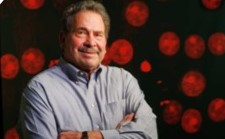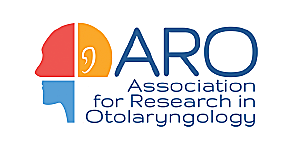 Dr. Donald Henderson passed away February 1, 2017, in the company of his wife Terri and three children Dana, Aaron and Lee.
Dr. Donald Henderson passed away February 1, 2017, in the company of his wife Terri and three children Dana, Aaron and Lee.
Don Henderson was born in Hamilton, Ontario, Canada on October 3, 1938. After graduating from high school, Don attended college at Western Washington State College in Bellingham, WA where he majored in psychology. Unknown to most of his colleagues, Henderson was recruited to Western Washington State on a football scholarship and, more importantly, played professional football for one season with the BC Lions of the Canadian football league.
Having found professional football too easy, Henderson decided to pursue an academic career and in 1962 entered the PhD program in sensory psychology at the University of Texas at Austin. After completing his PhD in 1966, Henderson spent two years as a post-doctoral fellow at the prestigious Central Institute for the Deaf in St. Louis, MO where he developed an interest in auditory evoked potentials and noise-induced hearing loss. In 1968, he was appointed assistant professor at the State University of New York Upstate Medical Center in Syracuse, NY. Anticipating the digital revolution, Henderson purchased the first university laboratory computer, a DEC PDP8 with an “unbelievable” 4k of core memory and a teletype and tape reader for output and input. Using this advanced computer hardware and special amplifiers, he was one of the early pioneers to assess auditory evoked potentials from humans and primates and to record single neuron discharge patterns from the auditory brainstem, techniques considered cutting edge at the time. In the early 1970s, Henderson teamed up with Roger Hamernik, a mechanical engineer who had been using a shock tube to study shock waves produced by supersonic aircraft. Henderson, recognizing that blast wave exposure was a major cause of hearing loss and decided to use this novel device to study blast induced hearing loss in animal models.
In 1980, Henderson moved his research team to the University of Texas at Dallas where he was promoted to the director of the Callier Center. He also served briefly as the acting dean of the School of Human Development. In 1987, Henderson moved to the University of Buffalo (UB) and assumed the position of professor and chair in the Department of Communicative Disorders and Sciences. A few years after arriving at UB, he co-founded the Center for Hearing and Deafness, a multidisciplinary research group that included scientists and clinicians from a wide range of schools, departments and scientific disciplines.
Henderson organized the first in a long series of international conferences on noise-induced hearing loss, ototoxicity and acquired hearing loss. The proceedings of the first noise conference held at Cazenovia College were published in 1976. This was followed by international noise conferences in Syracuse, USA, Beaune, France, Gothenburg, Sweden, Trento, Barga and Bari, Italy, Cambridge, England, and Niagara Falls, Canada. These conferences, which were scientifically stimulating, brought together leading scientists, administrators and clinicians from around the world in pleasant surroundings that fostered the exchange of ideas and new collaborations. A major accomplishment of these meetings was the compilation of 11 scholarly, widely read, state of the art books. For connoisseurs of elegant dining, the gala banquet in the heart of the wine cellars of Beaune, France will long be remembered as one of the best social and scientific events.
Over the course of his distinguished career, Henderson authored more than 130 scientific papers published in prestigious journals, 43 book chapters and 11 edited monographs. Henderson has given more than 300 scientific presentations at national meetings, international conferences or university colloquia. Henderson served as a consultant, reviewer, and advisor to many federal and state agencies such as NIOSH, NIH/NIDCD and CHABA. Henderson was an associate editor for Noise and Health and the Archives of Complex Environmental Studies and was also a frequent reviewer for leading journals in audiology, hearing science and neuroscience. In recognition of his many accomplishments, Henderson received the National Research Award in 2006 from Hofstra University for distinguished contributions to the field of research in hearing science and the Outstanding Hearing Conservationist Award from the National Hearing Conservation Association. Henderson was also granted two patents related to the development of drugs to prevent noise and drug induced hearing loss.
Henderson has a special gift for teaching and making anatomy, physiology, acoustics, clinical pathology and audiology sound easy, interesting and relevant. Over the years, he attracted many bright, highly motivated students who worked on research projects in his lab. Although he is best known for his work on noise induced hearing loss, his research interests spanned a broad range of topics including ototoxicity, evoked potentials, acoustic reflexes, cochlea anatomy, ototoxicity and age-related hearing loss.
Ask him about the latest novels or economic, political, sports and social events and Don would immediately offer an “earful” of thoughtful, provocative and engaging commentary about the world around us. His quick wit, smile and active mind would immediately capture your interest and imagination. Don will be remembered as someone full of life and vigor. His glass of wine was always half full, reflecting his enduring optimism for life.
![]()
 To donate by check, please mail it to the address listed below:
To donate by check, please mail it to the address listed below:
Parthenon Management Group
Attention: Association for Research in Otolaryngology
5034A Thoroughbred Lane
Brentwood, TN, 37027
For a downloadable flyer to share with others, please follow this link- Donald Henderson Travel Award Donation Flyer
